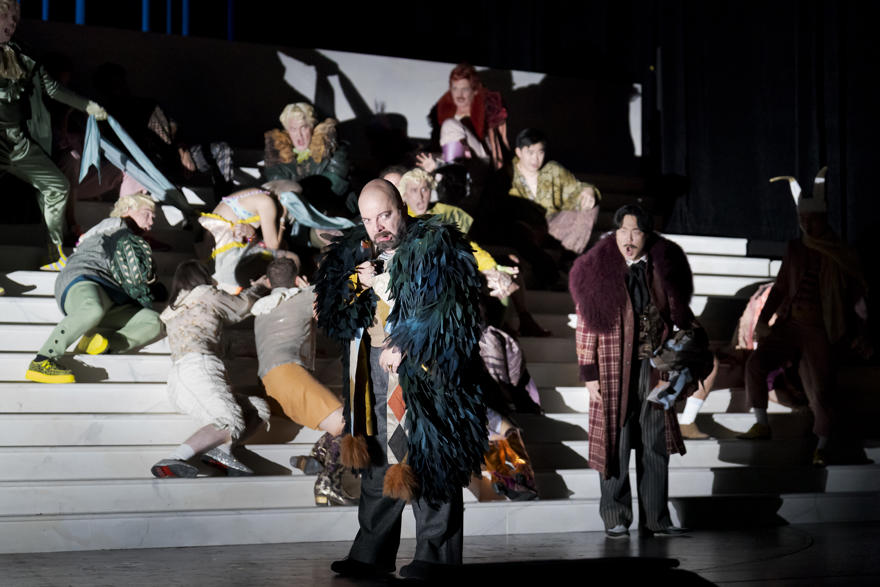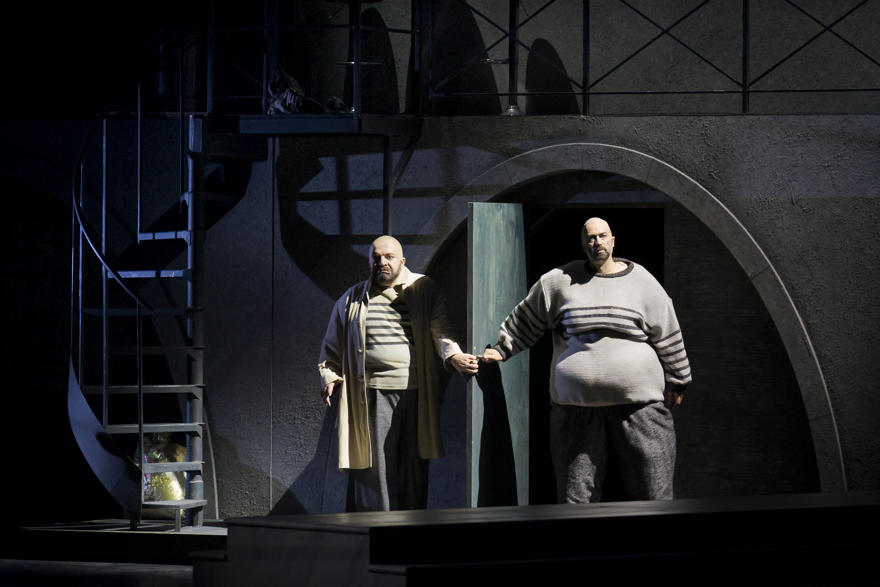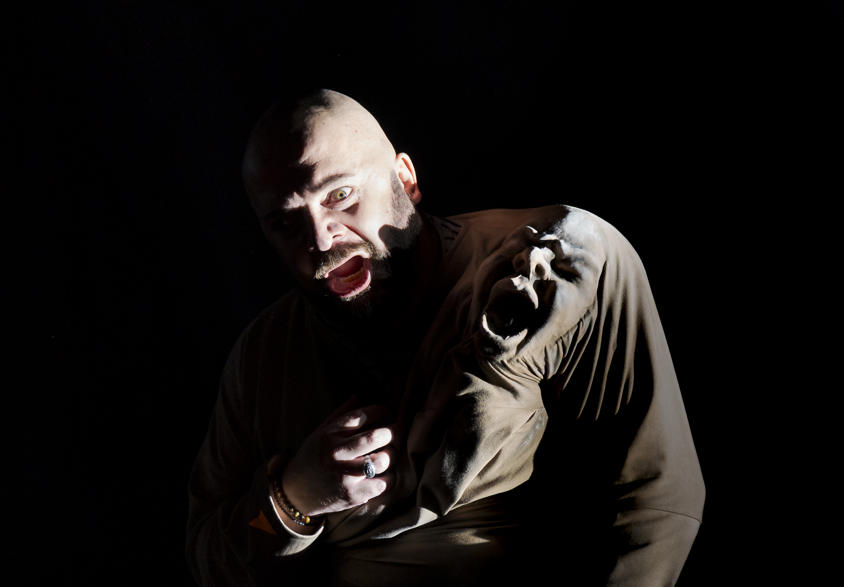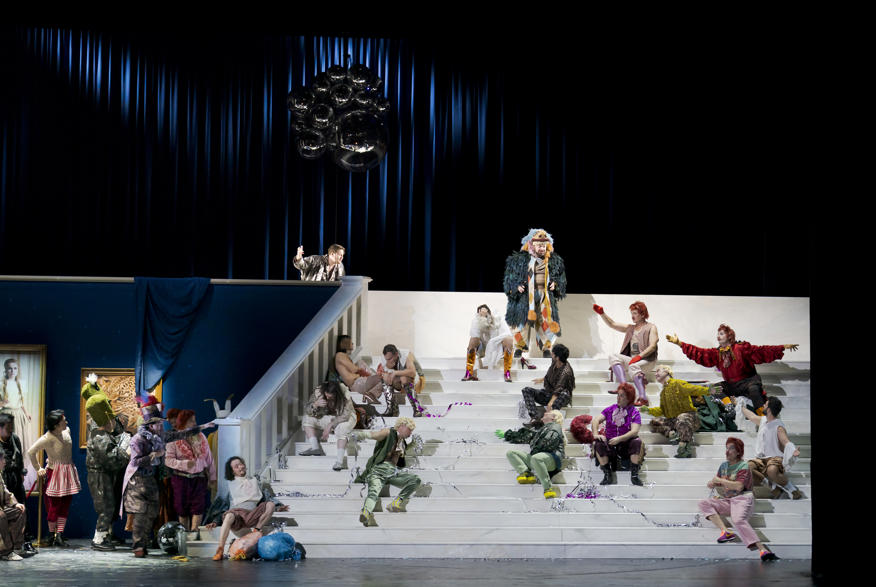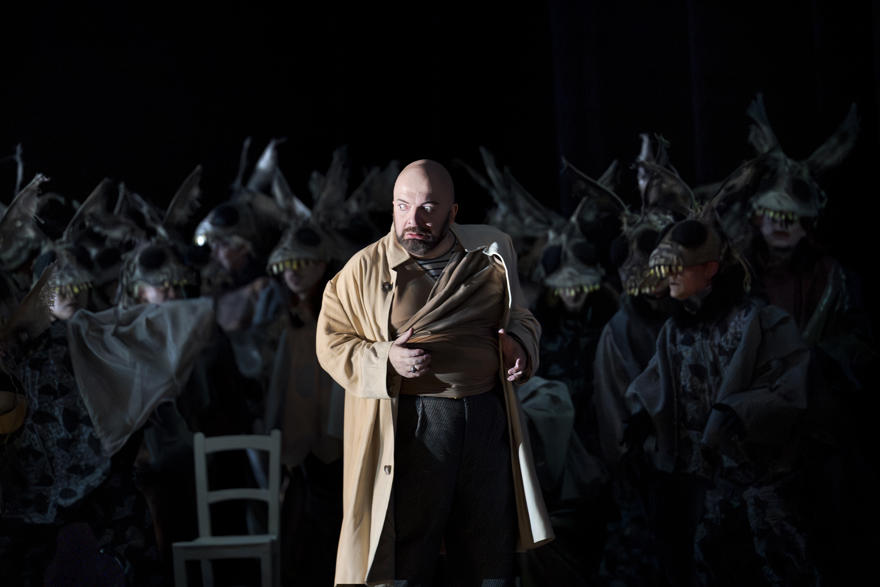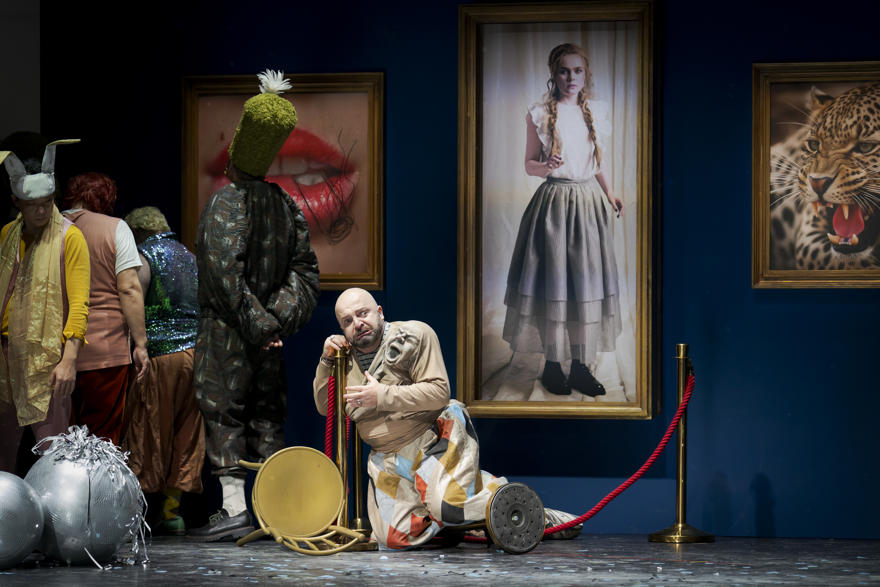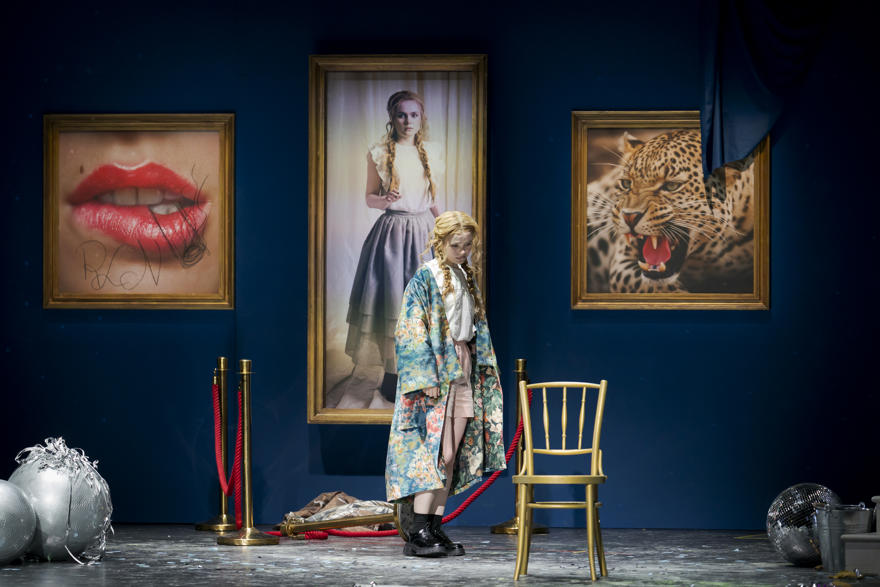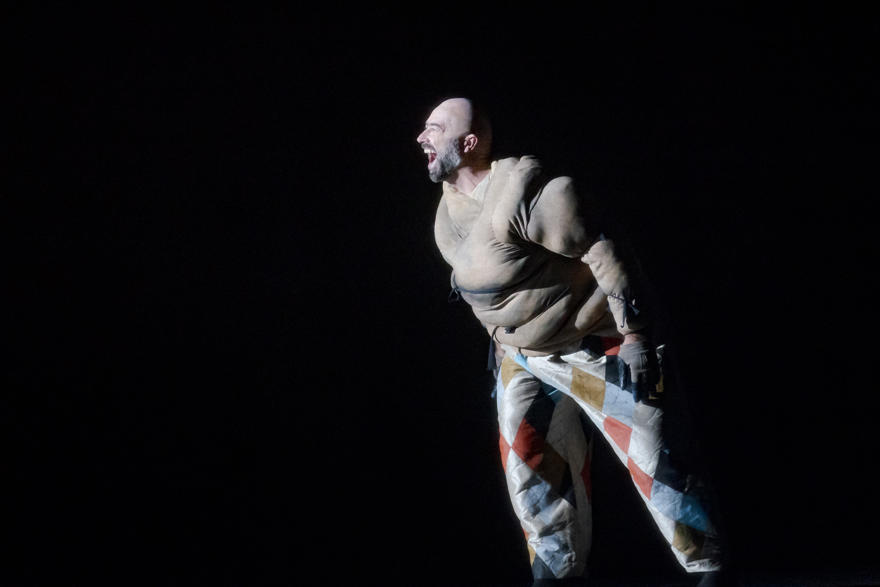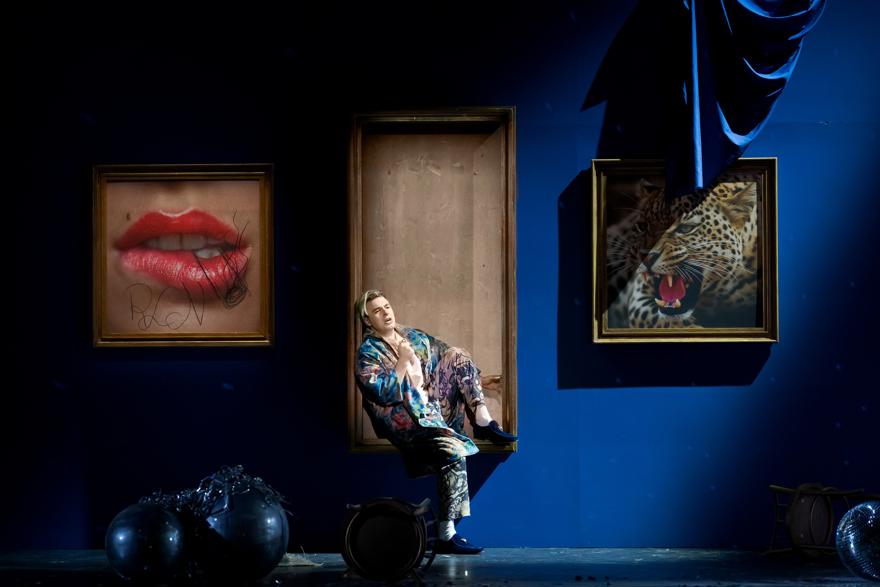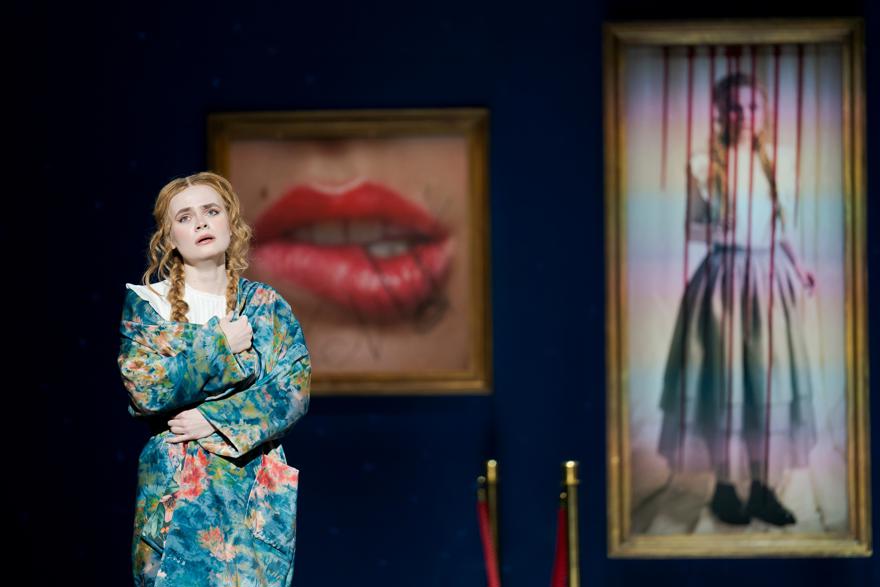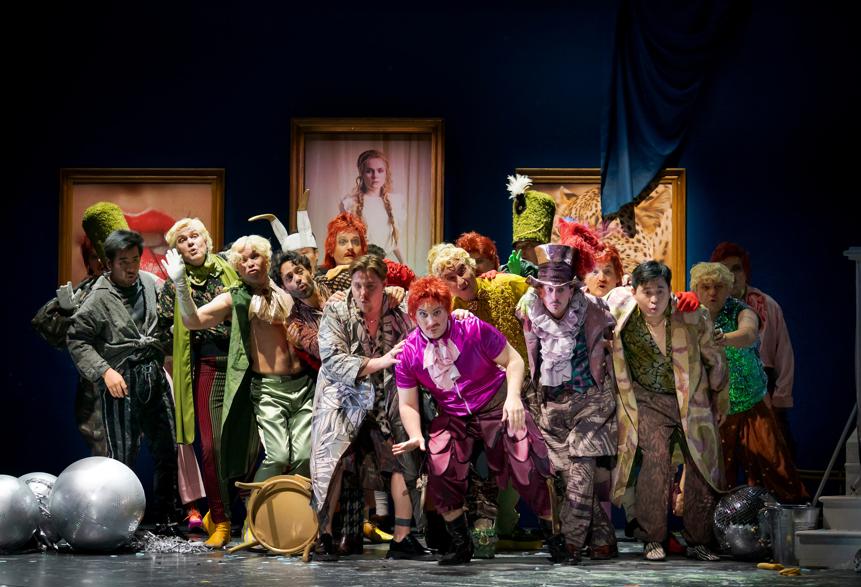
Rigoletto
Melodrama in three acts (1851)
Libretto by Francesco Maria Piave
In Italian with German surtitles
Giuseppe Verdi sends his protagonist Rigoletto on an emotional rollercoaster ride between feigned hilarity, honest paternal love and human abysses. Director Ute M. Engelhardt takes a look behind the facade of the joker and into the maw of the brutalised society in which the title hero finds himself. On the podium: chief conductor Vassilis Christopoulos, who once again devotes himself to a Verdi opera after his gripping interpretation of Macbeth.
In order to satisfy his lust, the Duke of Mantua has his servants repeatedly bring him new women. Rigoletto, the court jester, is also part of this misogynistic system. After the loss of his wife, he reacts to the world with biting derision. He lives solely for his daughter Gilda, whom he hides from society in order to protect her from the Duke’s grasp. In vain! Gilda falls in love with the Duke, and Rigoletto contributes to Gilda’s abduction without realising that it is his own daughter. When he realises what has happened, the wounded father has only one thing on his mind: revenge!
With Rigoletto, Giuseppe Verdi opened his triad of successes, alongside Il trovatore and La traviata, and which established his international fame on the world’s opera stages, which continues to this day. The politically-minded composer chose Victor Hugo’s drama Le Roi s’amuse (The King Amuses Himself) as the basis for his melodrama, a work that is entirely dedicated to the connections between hierarchy and the abuse of power. In his search for emotional truthfulness in music, Verdi contrasted the tender love of Gilda with the traumas and abysses of Rigoletto – a man on the margins of society. Verdi and his librettist Piave tell the story of their title hero against the backdrop of the cheerfully cynical world of the Duke, to whom the composer puts one of his most famous melodies, which in its exuberance is the mocking expression of a ruthless womaniser: “La donna è mobile.”
- Musical direction: Vassilis Christopoulos / Ulises Maino (Feb: 27, Mär: 8, 21)
- Stage direction: Ute M. Engelhardt
- Stage design: Stephanie Rauch
- Costume design: Katharina Tasch
- Lighting design: Stefan Schlagbauer
- Dramaturgy: Christin Hagemann
- Chorus Master: Johannes Köhler
- Il Duca: Pavel Petrov
- Rigoletto: Stepan Drobit / Nikoloz Lagvilava (Feb: 27, Mär: 8, 21)
- Gilda: Katerina von Bennigsen / Ekaterina Solunya (Feb: 27, Mär: 8, 21)
- Il conte Monterone: Daeho Kim
- Il conte di Ceprano: Lovro Korošec
- La contessa di Ceprano: Agustina Calderón
- Marullo: Nikita Ivasechko (Feb: 27, Mär: 8, 21) / Ivan Oreščanin
- Borsa: Jianwei Liu
- Sparafucile: Wilfried Zelinka
- Maddalena: Neira Muhić
- Giovanna: Leah Bedenko
- Statisterie der Oper Graz,
- Herrenchor der Oper Graz


